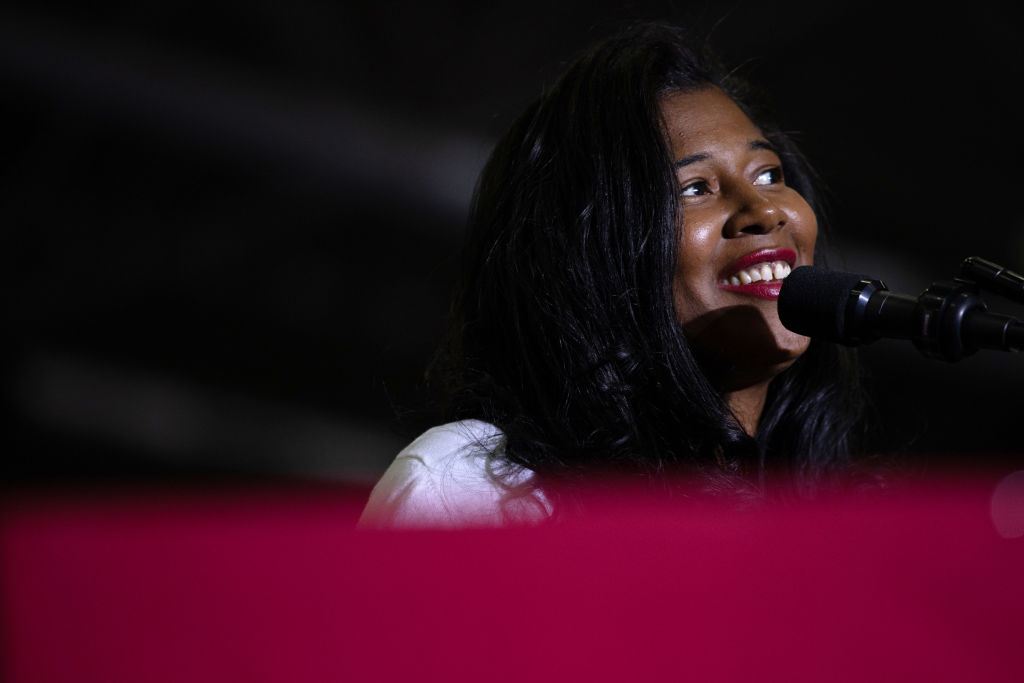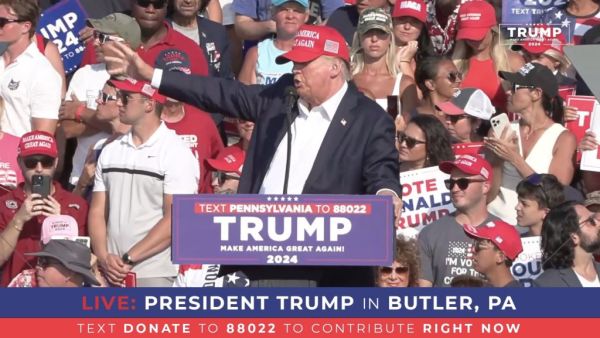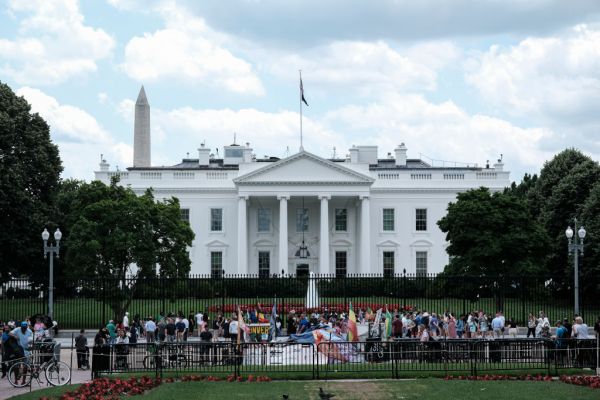High-profile candidates parroting stolen-election claims had a down night Tuesday. Although some races remain too close to call, the trend extends to races for state-level positions responsible for administering fair elections.
The number of candidates running for secretary of state this year who made election denying a key feature—or at least cozied up to conspiracies—raised concerns among political scientists and democracy-focused organizations. “It’s important that the people overseeing democracy believe in that democracy,” David Becker, executive director of the nonpartisan Center for Election Innovation & Research, said Wednesday.
Voters apparently think so too. In secretary of state contests in swing states especially, voters largely rejected candidates denying the legitimacy of the 2020 presidential election. So far, Audrey Trujillo in New Mexico, Dominic Rapini in Connecticut, Kim Crockett in Minnesota, and Kristina Karamo in Michigan lost to incumbent Democrats. In Vermont, the election-denying Republican candidate lost a long-shot bid too.
The degrees to which each candidate sowed doubt about 2020 varied: Crocket called the election rigged, and Trujillo called it a coup. Karamo falsely claimed that Donald Trump won Michigan and testified during a state Senate hearing on fraud. Rapini formerly served as chairman of Fight Voter Fraud, a Wyoming-based organization that pushed conspiracies about the 2020 election. While running, he said at times that Joe Biden was “duly elected” but continued to campaign on disproven claims about the 2020 election.
But Trujillo seems the most likely to repeat Trump’s playbook of contesting her own election. She refused to concede Wednesday, despite losing by 12 percent.
As secretaries of state, they would have wielded significant power in administering their respective states’ election systems and in some would have played a role in certifying election results.
Other contests in battleground states remained close: In Arizona, Democrat Adrian Fontes led Republican Mark Finchem 52 percent to 48 percent, with 67 percent of votes counted as of Wednesday night.
And in Nevada, Jim Marchant led Democrat Fracisco Aguilar 49-47 with 77 percent of the votes counted.
Stop the Stealers did triumph in some contests. Chuck Gray, who called Biden’s win “illegitimate” won an uncontested race in Wyoming. Diego Morales prevailed in Indiana. (Morales questioned the 2020 election results, at one point calling the election a scam, though he also said that Biden won the presidency legitimately.) In South Dakota, Monae Johnson—who repudiated the title of election denier but still raised some doubts about the election—won. And in Alabama Republican Wes Allen beat out a more fervent, Trump-endorsed election denier in the GOP primary, but was not exactly a believer in the legitimacy of Biden’s win himself: He supported a state-led motion for the Supreme Court to overturn Biden’s victory in key states.
Races for states’ attorneys general—who often must defend election results in court and in some states, play a role in certifying results—remained more mixed. Kris Kobach, who supported the Texas-led lawsuit asking the Supreme Court to overturn Biden’s win in some states, won narrowly over Democrat Chris Mann in Kansas. In Texas, GOP incumbent Ken Paxton won handily.
In Minnesota, Michigan, and Wisconsin, Democrats pulled out wins. The Arizona contest between Democrat Kris Mayes and Republican Abraham Hamadeh—who called the election “corrupt”—was essentially tied Wednesday.
Some of the most prominent election deniers had a bad night in battleground gubernatorial races: Doug Mastriano lost in Pennsylvania, Tudor Dixon lost in Michigan, and in Wisconsin, Tim Michels lost to incumbent Gov. Tony Evers. Michels has been inconsistent in denying the election, at times appearing more moderate on the issue. But he said that Trump would “probably be president right now if we had election integrity” and in the primary suggested he would consider ways to decertify Biden’s win of the state.
The gubernatorial contest in Arizona between Democrat Katie Hobbs and Republican Kari Lake, a prominent election denier, remains close.
Ryan Burge, a political science professor at Eastern Illinois University, thinks fringe candidates may have done better if a so-called red wave would have materialized, but not when Republicans underperformed overall: “For a lot of voters the Stop the Steal thing does not make any sense to them. It’s like a fringe movement, seems conspiracy theory-ish. And they just want to move on beyond all that stuff. I think that’s what we’re seeing a lot of—a lot of moderate voters going, ‘I would vote for Republicans but not that Republican.’”









Please note that we at The Dispatch hold ourselves, our work, and our commenters to a higher standard than other places on the internet. We welcome comments that foster genuine debate or discussion—including comments critical of us or our work—but responses that include ad hominem attacks on fellow Dispatch members or are intended to stoke fear and anger may be moderated.